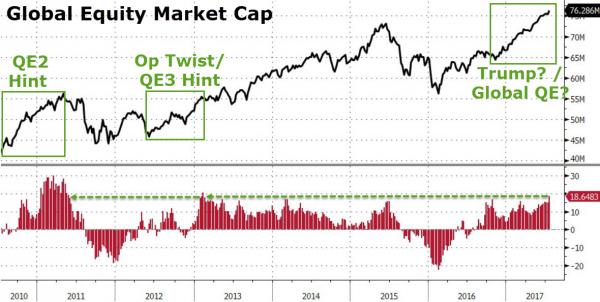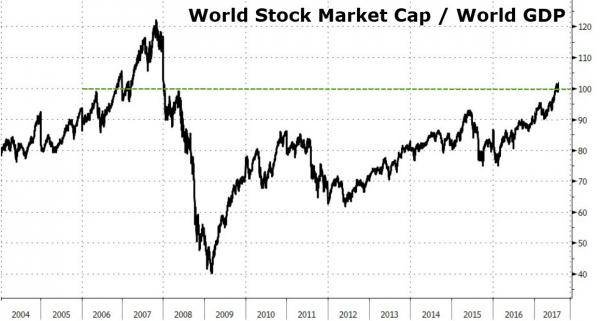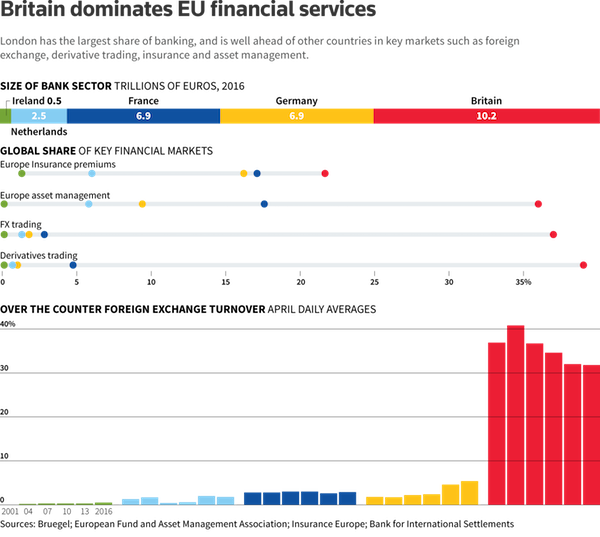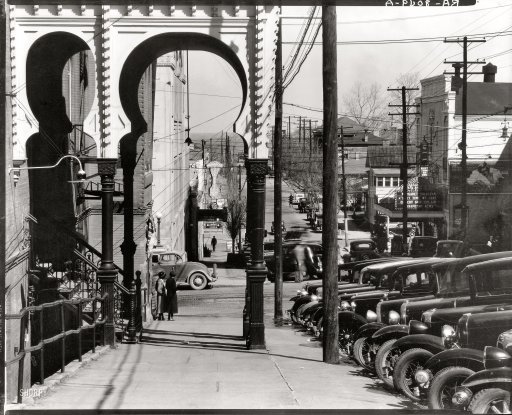
Salvador Dali The Feeling of Becoming 1931



https://twitter.com/i/status/1880632659401212320
Elon Musk: Humanity is becoming a superorganism.
“The Internet is like a nervous system for humanity, whereas previously, communication was more like osmosis.
In order for information to travel, somebody would have to call someone with a phone or write them a letter, and then… pic.twitter.com/sGXP5q4F1g
— ELON CLIPS (@ElonClipsX) January 18, 2025
Noem
The Biden regime picked up over 700K illegals from all over the world on PRIVATE jets to escort them to the city of their choice at the taxpayers' expense!
Even worse, they would fly illegals to another state to avoid deportation if they committed a serious crime!
SICKENING &… pic.twitter.com/mtlsckvJBS
— Michelle #AmericaFirst (@MichelleRM68) January 17, 2025
250
This is happening in every state in America right now…
We need to collectively demand more resources go towards combating the trafficking of children…
Human trafficking is over a 250 billion dollar business a year..
It’s far worse than most can even imagine… pic.twitter.com/ocPl5lvAsB
— Isaac’s Army (@ReturnOfKappy) January 17, 2025
Maher
Blistering ending monologue from Bill Maher as he torches LA Mayor Karen Bass 'Nero who fiddled in Ghana as LA burns':
"Axios ran a story on how getting the water out of the hydrants in Pacific Palisades was more complicated than it seems.
I'm sure it's very complicated. That's… pic.twitter.com/mwcBD2Z8Kq— Eric Abbenante (@EricAbbenante) January 18, 2025
Speaker
NEW: During a one-on-one meeting, Speaker Johnson asked President Biden why he paused LNG exports to Europe, says Biden was completely unaware he had done so.
The United States hasn't had a president for four years.
Johnson says Biden was completely unaware of an executive… pic.twitter.com/GgGm3QuYkM
— Collin Rugg (@CollinRugg) January 18, 2025
Strzok
https://twitter.com/i/status/1880476390354755690


The ceasefire, which was due to start this morning at 6.30 GMT, was delayed because Hamas did not release the names of 3 female hostages to be freed. They blamed technical difficulties. A few hours later, Hamas released the names and the ceasefire officially started. Anyone’s guess how long it will last.
• Hamas Names Israeli Hostages To Be Released First (RT)
Hamas has released the names of the three Israeli captives to be freed on the first day of the implementation of the ceasefire deal in Gaza, a Hamas spokesperson said in a post on Telegram. The move potentially clears the way for the truce to begin after an hours-long delay. Earlier, Israeli Prime Minister Benjamin Netanyahu threatened to cancel the ceasefire with Hamas if the Palestinian militant group did not provide a list of the Israeli hostages to be released in the first phase of the truce.
Abu Obeida, the spokesman for Hamas’ armed wing, the Qassam Brigades, said, “As part of the prisoner exchange deal we decided to release today: Romi Gonen, 24, Emily Damari, 28, and Doron Shtanbar Khair, 31.” The three civilian women were taken hostage on October 7, 2023 during the Hamas onslaught in which around 1,200 people were killed and 251 were kidnapped to Gaza. Israeli airstrikes on Gaza continued on Sunday even after the planned start time for the ceasefire had passed. Netanyahu said the truce “will not begin” until Hamas provides a list of hostages to be released as part of the agreement.

Bibi lost the support of Public Security Minister Itamar Ben-Gvir today, as well as two others. His majority is now razor thin.
• Netanyahu: Trump “Emphasized” That The Gaza Ceasefire Is “Temporary” (ZH)
Israeli Prime Minister Benjamin Netanyahu has issued some surprisingly bold assertions in a national televised address given just 12-hours before the much anticipated Gaza ceasefire is set to go into effect Sunday morning. Both Biden and Trump have hailed and celebrated the deal, but it’s the Republican president-elect who is by and large receiving the most credit for seeing it to the finish line. Some Israeli media outlets have represented the whole thing as a ‘defeat’ for Netanyahu, who appeared to want to keep the war going until Hamas is completely eradicated. Among Netanyahu’s most provocative words on Saturday was his claim that he has the support of President-elect Trump in the scenario Israel feels it must abandon the ceasefire and keep fighting. He says he has Trump’s full backing to resume the war, and has claimed further that Trump too agreed that the truce is just “temporary”. Watch below:
Netanyahu says Trump "emphasized" to him that the ceasefire is "temporary," and Israel will have "full backing" to resume the war in Gaza. He says Trump has decided to "lift all the remaining restrictions" on US munitions, allowing Israel to resume the war with "tremendous force" pic.twitter.com/oodqpwkU7I
— Michael Tracey (@mtracey) January 18, 2025
“Netanyahu also asserted that he negotiated the best deal possible, even as Israel’s far-right Public Security Minister Itamar Ben-Gvir said he and most of his party would resign from the government in opposition to it,” Times of Israel notes of the remarks. And there’s some some last-minute details which threaten implementation of the ceasefire… The prime minister had warned earlier that a ceasefire wouldn’t go forward unless Israel received the names of hostages to be released, as had been agreed. His statement came almost three hours after Israel had expected to receive the names from mediator Qatar. There was no immediate response from Qatar or Hamas. But without doubt Netanyahu is feeling the pressure, both within but even more from external allies, especially Washington – which writes the checks for the Israeli war machine.
As for Netanyahu’s talk of the deal being ‘temporary’ it’s unclear whether the Trump team agrees with this assessment. There hasn’t been any initial reaction from Trump as he prepares for the inauguration Monday. But Trump without doubt wants a ceasefire to stick, and is likely to be celebrating its implementation during some of Monday’s inaugural remarks. He has vowed to wind down various conflict hot spots, especially Ukraine, and bring peace. He has also warned that there will be “hell to pay” if Hamas doesn’t uphold its end of the truce deal. This suggests Netanyahu could be telling the truth, or at least an interpretation of it. An initial small group of hostages are expected to be returned to Israel by Sunday evening, with hopeful families awaiting and on edge.

“It is the duty of the President to propose and it is the privilege of the Congress to dispose,” said FDR. It’s a shame that this president will have to do both.”
• Trump’s 100 Executive Orders On Day One Promises Chaos, Huge Changes (Moran)
Trump aides are calling it “Shock and Awe.” There will be 100 executive orders (EO) and other executive actions starting Monday, Jan. 20. Indeed, most executive actions aren’t going to “shock” a lot of people. Trump has talked about all of them in the campaign and during his years in exile since his defeat in 2020. The scope of some of the EOs is broader than some on the left have been predicting, and narrower than some on the right were hoping for. The audacious nature of the 100 EOs masks the probability that almost all of them will be challenged in federal court. Even if the challenges are eventually unsuccessful, some of the executive orders will be picked apart or canceled altogether. The EOs that have garnered the most interest and that have been the target of a hysterical scare campaign on the left are the orders relating to illegal aliens.
In fact, the first actions taken by Customs and Border Protection (CPB) will be to pick up illegal aliens who have committed felonies. “That’s the low-hanging fruit,” said Oklahoma Sen. James Lankford. “People that recently crossed, people that were legally present and committed other crimes, people that the court has ordered them removed — that’s well over a million people. Start working through that process.” In the meantime, Trump is going to reinstitute the most effective guard against illegal immigration in history: Title 42. The measure was adopted during the pandemic as a public health rule, but Trump is planning to stretch the definition to cover the current border crisis. This will set offer howls of outrage among open borders advocates and will be challenged in court. Trump has several other actions planned to secure the border.
New York Sun: “Trump could also move to allow use of the Immigration and Nationality Act, which would authorize some state and local law enforcement to aid Immigration and Customs Enforcement officials, Axios has reported. On another front, Trump has vowed to issue an executive order to strip away birthright citizenship, which ensures children born to parents who do not have legal status in America are American citizens. That will likely set up a clash over the 14th Amendment that could wind up at the Supreme Court.” Trump has also promised to strip some federal funds from going to sanctuary states and cities. He tried the same thing during his first term, and was slapped down by appeals courts because, according to Eugene Volokh, the policy “ran afoul of constitutional limits on federal power and on executive power over the budget.”
Trump is hoping that the 54 judges he appointed to the appeals courts will take a different view of the constitutionality of denying funds to sanctuary cities. Other EOs that Trump is expected to sign include actions on energy and trade. “We will begin charging those that make money off us with Trade, and they will start paying, FINALLY, their fair share,” Trump wrote on Truth Social. He also announced that on Jan. 20, he would develop an “External Revenue Service.” This new agency will “collect tariffs, duties, and all revenue” from overseas. On foreign policy, China should prepare itself. In addition to slapping China with tariffs, Trump has vowed to rescind its designated status of “permanent normal trade relations,” also known as “most favored nation.” The status was granted more than two decades ago as China prepared to enter the World Trade Organization.
Such a move is popular among congressional Republicans, who think granting China “normal” status and allowing the nation into the WTO was detrimental to the American economy. But the move would likely require congressional action. On Ukraine, although Trump has said he could stop the war in “24 hours,” it will take considerably longer, given the animosity between the two countries. But Ukraine’s President Zelensky finally appears ready to deal. How far he will go for a ceasefire will determine how long the negotiations take. Not all of Trump’s day-one actions will require an EO. Many of the actions will be to rescind Biden administration EOs. Trump is trying to do as much as he can as president, because he knows that once he’s forced to work through Congress, a quagmire will ensue.
This appears to be the fate of all presidents, present and future. Congress has abandoned its constitutional responsibility to govern. “It is the duty of the President to propose and it is the privilege of the Congress to dispose,” said FDR. It’s a shame that this president will have to do both.

He won’t get much sleep.
• Trump’s First Day Executive Orders To Touch A Wide Range Of Subjects (JTN)
President-elect Donald Trump is set to formally take office on Monday after which he is expected to sign an exploding ball of executive orders that will set the tone for his administration on key issues, namely border security and energy. On the campaign, Trump facetiously quipped that he would not act as a dictator or impose authoritarian rule “except for day one.” “We’re closing the border and we’re drilling, drilling, drilling. Other than that I’m not gonna be a dictator,” he told an amused Sean Hannity during a town hall event last year. Since then, reports have emerged that Trump could sign as many as 100 executive orders on his first day in office. Trump himself made a litany of “day one” promises while on the campaign trail that included moves on nearly every key issue.
Such promises included the convening of a task force to plan America’s 250th birthday, the start of mass deportations, the imposition of tariffs on Mexico, an end to birthright citizenship, the termination of migrant flights, deregulations, orders permitting the expansion of energy production, restrictions on DEI and other programs, and the rooting out of career bureaucrats who work against his agenda. Immigration and border security During a recent meeting with Republican senators, Trump adviser Stephen Miller highlighted planned actions on immigration to begin early in the administration as part of what the Associated Press called “executive punch unseen in modern times.” Among the most highly-anticipated order will be the return of the “Remain-in-Mexico” policy requiring that would-be asylees stay outside the U.S. ahead of their court dates.
Others are likely to address the completion of the southern border wall, Trump’s signature campaign promise from 2016, while others are expected to target groups of illegal aliens that recently entered the United States and those who have already been approved for deportation.Some of the immigration orders may stall, however, with the Senate evidently hesitant to speedily confirm some of his key nominees for posts relevant to those policies. Still, some of his border actions will need only the weight of the president’s signature. One of his key immigration promises was to implement an executive order directing federal agents to interpret the law in a way that would not grant the children of illegal immigrants American citizenship. Trump made that promise in May of 2023, at which time it generated considerable legal speculation about the likely challenges to such a dramatic reinterpretation of the law.
Trump promised to begin mass deportations on day one, but some sources have suggested the deportation numbers will be low at first and gradually build while the administration gets its apparatus in place. “You’re not going to see historic numbers in month one. You start to see a steady increase, and then it’ll keep building and building,” one source familiar with the administration’s plans told Politico. nIndependent of immigration, Trump reportedly plans to target energy production, in part by rolling back Biden-era executive orders and environmental regulations. Specifically, Trump has taken aim at the Biden administration’s natural gas export restrictions and electric vehicle mandates, vowing to end them on day one and to expand fracking in Pennsylvania.
The natural gas export ban was part of the Biden administration’s climate change initiatives and was ostensibly temporary, though it faced legal challenges and the Department of Justice in December asked the courts to halt proceedings, given the incoming Trump administration was likely to end the ban anyway. The electric vehicle mandate, meanwhile, was a regular fixture of Trump’s campaign, especially amid United Auto Workers’ lengthy strike. Trump made the argument that the Green New Deal and the Biden administration’s effort to transfer auto-manufacturing to electric vehicles would bankrupt the industry and result in additional offshoring of their jobs. “I will cancel her insane electric vehicle mandate. It’ll be ended on day one,” he promised.
Jan. 6 pardons? In December, Trump promised to pardon Jan. 6 participants on his first day, saying they were “living in Hell” as the Justice Department pursued charges over their involvement in the incident. More than 1,500 people have faced charges related to Jan. 6 but the scope of Trump’s planned pardons remains unclear, especially whether they will include those convicted of violent offenses. Trump’s actual day one schedule was changed last minute due to inclement weather, with the Inauguration itself being moved inside the Capitol Rotunda, a move not seen since President Ronald Reagan’s second inauguration in 1985. After the swearing-in ceremony, Trump plans to travel to the Capital One arena, which will be open for the crowd to watch the ceremony on a large screen. After that appearance, he is expected to make his way to the White House to begin signing his many planned executive orders.

He has to undo 4 years of “Biden”.
• Top Priorities for Trump’s Presidency (ET)
Readers of The Epoch Times have identified border security, fiscal responsibility, and national defense as the top priorities for President-elect Donald Trump’s incoming administration. A poll of 26,740 readers, conducted between Jan. 10–13, points to these issues as key areas of focus, reflecting widespread concern over unchecked immigration, economic instability, and global security threats.
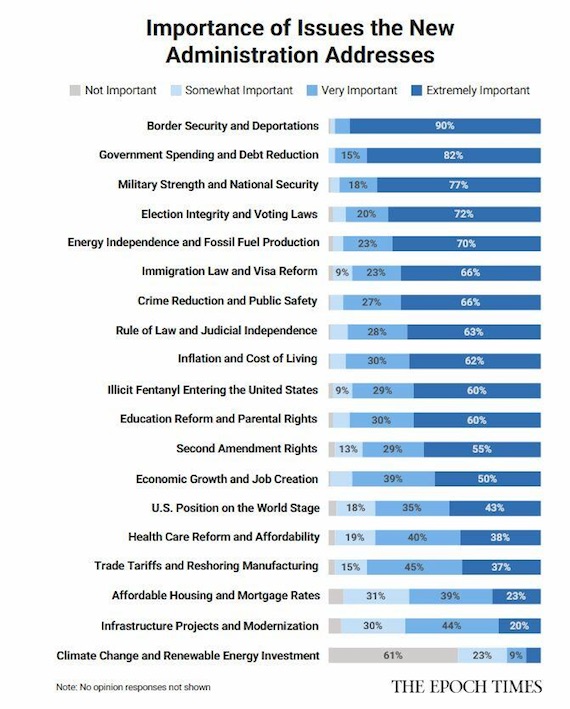
Meanwhile, write-in responses by readers of The Epoch Times highlighted strong support for government reform, coupled with opposition to progressive policies such as diversity, equity, and inclusion (DEI). Border security and deportations topped the list, with 90 percent of respondents considering it “extremely important.” This aligns with Trump’s campaign pledge to launch what he has described as the largest deportation operation in American history, set to begin immediately after his inauguration on Jan. 20. “On my first day back in the Oval Office, I will sign a historic slate of executive orders to close our border to illegal aliens and stop the invasion of our country,” Trump said during a Turning Point USA conference in Phoenix in December 2024. Besides vowing to deport millions of illegal immigrants, Trump also plans to end birthright citizenship, in which anyone born in the United States is currently given automatic citizenship, including to parents of illegal immigrants.
Fiscal Discipline and Economic Stability. Government spending and debt reduction ranked as the second-highest priority, with 82 percent of respondents highlighting the need for fiscal discipline. Concerns over the ballooning national debt—now at $36.22 trillion—is a key concern. The president-elect has said he intends to address these issues through measures such as cutting wasteful spending and reforming federal agencies. To spearhead these efforts, Trump has proposed the creation of the Department of Government Efficiency (DOGE)—with Tesla CEO Elon Musk and entrepreneur Vivek Ramaswamy tapped to lead the initiative. DOGE aims to slash $2 trillion from the federal budget.
“Your money is being wasted,” Musk said at a Trump rally in New York in October 2024, underscoring Trump’s commitment to tackle government inefficiency and cut wasteful spending. The federal government spent $6.75 trillion in fiscal year 2024—which was $1.83 trillion more than it collected in revenue—pushing the national debt up to $36.22 trillion, according to the Treasury Department. So far in fiscal year 2025, which runs until the end of September, the government has already spent $1.79 trillion.
The issue of debt sustainability, long a concern of fiscal conservatives, has clearly been on Trump’s radar. In a statement announcing the nomination of Scott Bessent to serve as his Treasury secretary, Trump said his administration would “reinvigorate the private sector, and help curb the unsustainable path of federal debt.” The nonpartisan Congressional Budget Office (CBO) has warned about the unsustainable trajectory of federal debt, projecting it to climb to a hefty 181 percent of GDP by 2053. If left unchecked, this rising debt is expected to slow economic growth, increase interest payments to foreign creditors, and limit lawmakers’ flexibility to address future fiscal and economic challenges, according to the CBO.
Strengthening National Defense and Securing Elections. Military strength and national security emerged as the third most important priority, with 77 percent of respondents citing it as “extremely important.” Concerns over global threats from adversaries such as China and Russia have amplified calls for bolstering America’s defense capabilities. Trump’s proposed “peace through strength” agenda emphasizes modernizing the military, increasing operational readiness, and reinforcing U.S. deterrence on the world stage. On the campaign trail, Trump vowed to reform the U.S. military, criticizing “woke” policies that he says undermine the nation’s warfighting capacity.

More than his approval rating.
• Most Americans Share Trump’s Views – Poll (RT)
Most Americans support Donald Trump’s policies, despite the president-elect’s approval rating hovering around 50 percent, according to a New York Times and Ipsos poll published on Saturday. The poll, which surveyed 2,128 adults between January 2 and 10, indicated strong backing for several of Trump’s key policy priorities, such as reducing illegal immigration and implementing protectionist measures against Chinese imports. More than two-thirds of respondents opposed offering so-called “gender-affirming care” to children, another major agenda item for Trump. Approximately 71% of Americans believe that no minors should be prescribed puberty-blocking drugs or hormones. Last month, Trump vowed to end “transgender lunacy,” promising to prohibit sex change surgeries for minors and keep trans athletes out of women’s sports.
Nearly four in five respondents agreed that athletes who were assigned male at birth but transitioned should not be allowed to compete against women in sports. A vast majority of respondents – 87% – supported deporting illegal immigrants with criminal records, one of Trump’s central talking points during his reelection campaign. More than half of respondents either strongly or somewhat supported the deportation of all illegal immigrants in the US, according to the poll results. Nearly two-thirds of respondents – including 54% of Hispanics and 44% of Democrats – favored deporting undocumented migrants who entered the US during President Joe Biden’s last four years in office. The Biden administration reversed several immigration restrictions set by Trump during his first presidency, contributing to a spike in illegal immigration.
Support for Trump’s promises to impose heavier tariffs on Chinese and Mexican imports was nearly evenly split, but slightly leaning toward opposition. Approximately 46% supported raising tariffs on goods imported from China and Mexico, while 50% opposed such measures. Trump’s favorability rating remains just below 50%, according to data posted by poll aggregator website FiveThirtyEight on Friday. More than half of Americans view the entire US political system as broken, according to the NYT/Ipsos poll. Some 57% of Democrats and 63% of Republicans believe that the American political system has been broken for decades.

TikTok itself pulled the plug. From yesterday: “The platform’s CEO, Shou Zi Chew, is expected to attend Trump’s inauguration and has thanked Trump for his readiness to work on averting the ban. Trump’s incoming national security adviser, Mike Waltz, has signaled that TikTok could remain operational if a “viable deal” is reached. “We will put measures in place to keep TikTok from going dark,” Waltz said, adding that the legislation allows a 90-day extension for ByteDance to finalize divestiture.”
• TikTok Goes Dark In The US (RT)
Some 170 million US users of the viral social media app TikTok faced a blackout of the service on Saturday, days after the Supreme Court passed a decision that could lead to a national ban of the platform. On Friday, the Supreme Court ruled that TikTok needs to divest from its Chinese parent company, ByteDance, by Sunday or face a ban. Late Saturday, users in the US received an update for TikTok, blocking the application’s use and explaining the outage. “We regret that a US law banning TikTok will take effect on January 19 and force us to make our services temporarily unavailable,” the messages said. “We’re working to restore our service in the US as soon as possible.” TikTok warned about the possible suspension of its services in a statement on its newsroom page on Saturday.
“Unless the Biden Administration immediately provides a definitive statement to satisfy the most critical service providers assuring non-enforcement, unfortunately TikTok will be forced to go dark on January 19,” TikTok said in the statement. The Supreme Court’s decision stems from allegations that ByteDance’s ownership of TikTok poses a risk to US national security. According to the court, the app’s ownership could potentially allow the Chinese government access to American users’ data. TikTok has dismissed allegations that its Chinese ownership poses a threat, maintaining that it has “never shared” American users’ data with Beijing. President-elect Donald Trump has signaled that he will probably give the app a temporary reprieve from the ban to allow it to sell to a non-Chinese company. Trump will “most likely” give the app a “90-day extension,” he told NBC news in a phone interview on Saturday.

Rubio is all about China.
• Marco Rubio Says No Clear Reason Why US Bankrolled Ukraine (SCF)
It doesn’t bode well that the next U.S. Secretary of State begins his top-flight position in government by telling blatant lies and fatuities. Marco Rubio (53) is a sure bet to be confirmed as America’s most senior international envoy representing the new administration of President Donald Trump, who will be inaugurated in the White House on Monday. This week, Florida Senator Rubio appeared before the Senate in confirmation hearings for his post. Rubio has been a senator since 2011 and has served on foreign relations and intelligence committees. Despite bitter personal clashes with Trump in the 2016 presidential campaign, Rubio was picked for the top diplomat post in the incoming administration. The confirmation is a done deal given his deep connections in Congress among Republicans and Democrats.
The ambitious son of Cuban immigrants is known for his hawkish views. He previously called Russian President Vladimir Putin a “thug” and described Russia as a “gangster state with nuclear weapons.” Any future trips to Moscow will be awkward to say the least, especially when the “tough guy” Floridian meets a real diplomat like Russia’s Sergei Lavrov. Strangely, though, this week, Rubio projected himself as the voice of reason and diplomacy. It was quite a U-turn. He told the Senate committee that the top priority of the Trump administration will be to bring the war in Ukraine to an end. That view aligns with Trump’s oft-expressed desire for a settlement to the three-year conflict. There’s a lot to parse in Rubio’s weasel words. He informed senators: ”It should be the official policy of the United States that we want to see it [the war] end… This is not going to be an easy endeavor… My hope is that it could begin with some ceasefire.”
Rubio was one of the biggest cheerleaders for the Ukrainian regime, believing that it would inflict a strategic defeat on Russia. Now, he has suddenly been overcome with seeming prudence and concern for peace by declaring that Ukraine cannot possibly win against Russia. Rubio went on: “In order to achieve objectives like the one that needs to occur in Ukraine, it is important for everyone to be realistic. There will have to be concessions made by the Russian Federation, but also by the Ukrainians, and the United States lends itself there. It’s also important that there be some balance on both sides.” So, you see what’s happening here. Rubio is uncharacteristically sounding like a peace envoy – after years of spouting belligerence towards Russia – and sneakily setting up the United States to be a kind of broker between two warring parties.
Note how he advocates concessions by both sides – Ukraine and Russia – without mentioning that the U.S. is a principal party to the conflict (albeit by using proxy Ukraine). He appeals to people to be “realistic” because Ukraine can’t win and it is “running out of Ukrainians.” This is after Rubio and countless other hawkish politicians in Washington pushed this war to the destruction of Ukraine, with over one million casualties from far superior Russian firepower. Rubio and his imperialist warmongering ilk have pushed this proxy war at the risk of inciting a nuclear conflagration with Russia. But it was the bit when Rubio tried to sound like the innocent diplomat deploring violence that peaked contempt for this pathetic Yes Man.
After acknowledging that the United States has supplied Ukraine with $175 billion in total aid, including at least $65 billion in military, since the eruption of conflict in February 2022, Rubio complained that it was “never clearly delineated what the end goal of the conflict was.” He added: “What exactly were we funding? What exactly were we putting money towards? On many occasions, it sounded like ‘however much it takes for however long it takes’. That is not a realistic or prudent position.” Marco Rubio is a liar. He knows full well from his deep involvement in U.S. imperialist machinations that the plan was to sponsor a NeoNazi regime in Kiev since the CIA-backed in 2014 to wage war on Russia for its calculated strategic defeat and conquest. Washington bankrolled Ukrainian fascists to do its dirty work. That’s exactly what it was funding. Now Rubio is pretending that it was all some kind of misadventure that needs to be brought to a settlement.

Tuesday. Is that under Yellen or Bessent?
• US Treasury To Take ‘Extraordinary Measures’ After Trump Inauguration (RT)
US Treasury Secretary Janet Yellen has said her department will take “extraordinary measures” to prevent the US from hitting the national debt limit on Tuesday, one day after President-elect Donald Trump takes office. In a letter to Congress on Friday, Yellen explained that the US will hit its roughly $36 trillion debt limit between January 14 and January 23, potentially leading to a default. To avoid this possibility, Yellen said the Treasury Department will use a number of accounting tricks, including pausing payments into civil service retirement accounts until Congress and the president agree to raise the debt ceiling again. Yellen did not say for how long her measures will forestall a default. sThe US debt ceiling was raised three times during President Joe Biden’s term in the White House.
Last month, Trump pressed House Republicans to include another raise in a stopgap spending bill, but the proposal was ultimately defeated by dozens of fiscal conservatives in the GOP. Trump has repeatedly said that the debt ceiling should be abolished altogether to avoid such near-yearly showdowns, arguing that the limit – which is intended to restrict government borrowing – is pointless when it is repeatedly raised. ”It doesn’t mean anything, except psychologically,” he told NBC News last month. “The Democrats have said they want to get rid of it. If they want to get rid of it, I would lead the charge.” Scott Bessent, Trump’s pick to replace Yellen, has said he would work with Congress to repeal the debt ceiling if instructed by Trump.

“The raid will begin on Tuesday morning and last all week..”
• Trump Plans Huge Chicago Illegal Immigrant Raid – WSJ (RT)
US President-elect Donald Trump will kick off his deportation drive with a large-scale raid in Chicago one day after his inauguration, the Wall Street Journal reported on Friday. Hundreds of immigration officers are expected to take part in the raid. The raid will begin on Tuesday morning and last all week, with between 100 and 200 Immigration and Customs Enforcement (ICE) officers deployed to the city, the newspaper reported, citing four anonymous sources. Officers will target illegal immigrants with criminal backgrounds, although anyone present during arrests who entered the country illegally will also be detained, the sources said. Trump promised on the campaign trail that if elected, he would lead “the largest deportation operation in American history.”
In an interview with MSNBC last month, he said he would start by deporting illegal immigrants who have committed crimes inside the US, before moving on to “people outside of criminals.” There are thought to be anywhere between 11 million an 35 million illegal immigrants living in the US. The president-elect has appointed former ICE Director Tom Homan as his ‘border czar’, and tasked him with carrying out the deportations. “We’re going to start right here in Chicago, Illinois,” Homan said at a Republican dinner in the city last month. “And if the Chicago mayor doesn’t want to help, he can step aside. But if he impedes us, if he knowingly harbors or conceals an illegal alien, I will prosecute him.” Chicago was chosen as the location of the first raid because of its high numbers of illegal immigrants and Trump’s animosity with the city’s Democratic mayor, Brandon Johnson, the Wall Street Journal’s sources said.
Chicago is a so-called ‘sanctuary city’, meaning the city authorities do not ask about immigration status, and are forbidden from cooperating with federal immigration agencies such as ICE. Johnson has vowed to keep these policies in place, and on Wednesday, the Chicago City Council sided with him, voting 39-11 against a measure that would have allowed city police officers to work with ICE on immigration cases. In a statement to the Wall Street Journal, the Chicago Police Department said that while its officers would not take part in the upcoming raid, they “will not intervene or interfere with any other government agencies performing their duties.” More raids are expected to follow, the newspaper reported, adding that large immigrant centers such as New York, Los Angeles, Denver, and Miami are considered top targets for the Trump administration.

“..the Azov Sea became Russia’s internal sea. Any claims to its waters are gross interference in the internal affairs of our country..”
• Russia Warns Against UK-Ukraine Claims to Azov Sea (Sp.)
Russia will firmly suppress any attempts to lay claims to the Sea of Azov after it became its internal sea, Russian Foreign Ministry spokeswoman Maria Zakharova said on Saturday. “Neither Ukraine nor the UK has any room for cooperation in the Azov Sea. After the Donetsk People’s Republic and the Kherson and Zaporozhye regions joined Russia in September 2022, the Azov Sea became Russia’s internal sea. Any claims to its waters are gross interference in the internal affairs of our country and will be severely suppressed,” Zakharova said.
Moscow considers this agreement to be nothing more than a PR stunt, she added. “Behind this, we see London’s long-standing desire to gain a foothold in these waters, especially in the Azov-Black Sea basin. Kiev, despite all its geopolitical claims, has been assigned only a supporting role in this,” Zakharova said. On Thursday, Ukraine and the United Kingdom signed a “One Hundred Year Partnership Agreement,” pledging to enhance maritime cooperation in the Baltic, Black and Azov seas.

“..disrupted supplies to Austria, Italy and Central Europe, raising energy prices and prompting regional efforts to minimize the impact.”
• Frozen Future? Europe’s Energy Crisis Worsens Amid Gas War (Sp.)
Ukraine’s halt to the transit of Russian gas, combined with sanctions imposed by the US on Russian oil and gas companies, pose a significant risk of plunging Europe into a new energy crisis. Hungarian Prime Minister Viktor Orban raised these concerns during his visit to Belgrade, where he held talks focused on energy challenges with Serbian President Aleksandar Vucic. “Recent developments in Europe’s energy supply are alarming,” Orban said in a video message aired on Hungarian television. “Ukraine has blocked a pipeline that supplied gas to Hungary, and the US administration has introduced sanctions that have driven up energy prices across Europe. The continent is hurtling toward another energy crisis,” Orban said.
The outgoing US government imposed sanctions on Russia’s oil and gas sector on January 10, targeting companies like Gazprom, Neft and Novatek, 183 tanker vessels and top executives. Serbia’s NIS, partly owned by Gazprom, was also affected, with the US demanding the cancellation of Russian investments by February 25. Combined with Ukraine’s block on Russian gas transit on January 1, the actions have disrupted supplies to Austria, Italy and Central Europe, raising energy prices and prompting regional efforts to minimize the impact.

“..he did not argue, and he did not shout. “I need a week,” was all he said.”
• New Juicy Details About How Biden Was Forced To Drop Out (Margolis)
“If you run and you lose to Trump, and we lose the Senate, and we don’t get back the House, that 50 years of amazing, beautiful work goes out the window,” Schumer told him. “But worse — you go down in American history as one of the darkest figures.” Schumer added, “If I were you, I wouldn’t run, and I’m urging you not to run.” Democrats spent years dismissing concerns over Mr. Biden’s age and mental fitness for the presidency, and ultimately spearheaded the effort to pressure him into stepping aside. Amusingly, the story makes clear that Schumer’s concern wasn’t over Biden’s ability to do the job.
For months, Mr. Schumer had been concerned that Mr. Biden was going to lose to Mr. Trump and cost Democrats Congress. It wasn’t that he thought Mr. Biden was not capable of the job. During their weekly conversations, the president often rambled, but he had always rambled. Once in a while, Mr. Biden would forget why he had called, but Mr. Schumer thought little of it. He was convinced that Mr. Biden could handle the job. According to the story, Republican attacks about Biden being old and senile were just too much to overcome—even though the mainstream media was rabidly pushing the Democratic Party line.
“Long before the president’s disastrous debate performance, Mr. Schumer had privately concluded that the barrier of Mr. Biden’s age was too much for him to overcome,” the report says. The debate wound up being “a gift” in the eyes of Chuck Schumer, because it became “a forcing mechanism to start an overdue discussion about the president’s political viability.” As concerns mounted over President Biden’s ability to continue his campaign, Biden continued to refuse to step aside, sending a defiant letter on July 8 declaring his intention to stay in the race, angering congressional Democrats. At a tense July 11 meeting, frustrated senators demanded proof of Biden’s fitness, with some warning their silence would soon end.
Senator Sheldon Whitehouse of Rhode Island told Mr. Biden’s aides that the silence from the majority of Democratic senators should not be interpreted as a sign of support. It was out of respect and affection to allow Mr. Biden time to gracefully exit the race, but it would not last forever, he said, because if they continued to vouch for his fitness, they would be “lying.”. As support from the caucus was crumbling, Schumer ultimately was the one who went to Biden’s beach house to “deliver his own blunt message.” Mr. Schumer said if he had even a 50 percent chance of winning, he would probably keep going. “Fifty-fifty, to do this, to stay here; it’s worth it,” he said. “But, Mr. President, you’re not getting the information as to what the chances are.”
When he asked whether Mr. Biden had talked to his pollsters about his chances of winning the race, the president shook his head. “Well, I have talked to them,” Mr. Schumer said. “My guess is you have about a 5 percent chance. None of your pollsters disagree with me.” Only twice did Mr. Biden interrupt to ask a question, and both times it was: “Do you really think Kamala can win?” Mr. Schumer said that he didn’t know, but that she had a far better chance than Mr. Biden did. (Mr. Biden has since made it clear that he disagrees. In an interview with USA Today, the president said of whether he could have defeated Mr. Trump: “It’s presumptuous to say that, but I think yes.”) […] At the time, Mr. Biden revealed little of his own thinking, but he did not argue, and he did not shout. “I need a week,” was all he said.

“..what passes for “Western democracy.”
• The Man Who Probably Will Not Be Allowed To Lead Romania (Karganovic)
Calin Georgescu rightfully has a huge grievance against what passes for “Western democracy.” He is the clear first-round winner in the Presidential elections held in Romania late last year. Yet his projected even more resounding victory in the second round, scheduled for early December 2024, was scrapped (as the BBC indelicately put it) following a Romanian Supreme Court ruling that the electoral process was marred by alleged hybrid warfare interference conducted by Russia on Georgescu’s behalf.
How do you “scrap” elections in a vibrant democracy such as Romania, which also happens to be a member in good standing of NATO and the European Union, which are bastions of liberal freedoms and the rule of law? Well, you do it by making up a bogus dossier on the political candidate that you dislike and by ordering the local judiciary to act on it as if it were genuine evidence. The dossier purporting to document the alleged interference was so patently phony that at its first sitting to consider the matter the Romanian Supreme Court dismissed it out of hand. This show of integrity did not sit well at all with the paladins of the rules-based order. So they ordered the judges to reassemble forthwith in their chambers and to get it right this time. On 6 December the distinguished Romanian jurists did just that and obediently reversed their ruling issued just four days previously.
Citing Article 146 (f) of the Romanian Constitution concerning the legality and correctness of the presidential elections, the Court ordered that the “entire electoral process will be integrally redone.” So the result of the first round was duly “scrapped” and along with it the second round as well. The second round, which was in progress as the judges hurriedly improvised their new ruling, was stopped in its tracks. As even the Atlantic Council, no friend of elections which go the wrong way, was compelled to admit “the rollout of the decision was somewhat fumbled, as it became public while polling stations were already open for the [Romanian] diaspora in the second-round presidential election, and by the time the process was stopped, around 53,000 citizens abroad had already voted.” Scrapped just in time, because the Romanian diaspora was known to be a hotbed of Georgescu supporters.
The Presidential election was set by the judges for an unspecified date in the future. Some rumours suggest that it might be in May of this year, or whenever it is that the stage can be prepared to ensure the right outcome. In the meantime, Klaus Iohannis, who should have relinquished his post in December to his successor, is now as legally “expired” as his Ukrainian colleague Zelensky. But that does not seem to bother any of the vociferous champions of the democratic process. Iohannis after all is their man. The Romanian public, however, do not seem to take kindly to electoral interference by the compliant judges and their string-pullers, who are widely suspected of being located abroad but not in Russia. Thousands have been marching in the streets of Bucharest and other major cities to oppose the cancellation of the elections.
How much good it will do them in a country that has embraced the principles of Western democracy remains to be seen. The protagonist of this political earthquake who was not permitted to democratically establish his credentials as the new President of Romania, Calin Georgescu, ever since his first-round triumph has been subjected to the full measure of calumny that is reserved for those whom the globalist system perceives as a non-team-player and a threat. The hope was evidently that he would be successfully discredited and simply fade away, allowing the charade of “democratic elections” with a prearranged outcome to be repeated whenever it is judged safe to do so.
Expectedly, the Georgescu affair with its scandalous implications has been largely ignored by the collective West media, except for a few derogatory observations here and there at the banned candidate’s expense. The Georgescu story might have died a quiet death but for the professionalism of American podcaster Shawn Ryan, who decided to perform a public service by travelling to Romania to find out first-hand what the electoral commotion was all about. The result was a remarkable interview with the man who by all reasonable estimates should be sitting today in the Presidential office in Bucharest. It is worth viewing carefully and in its entirety for the insights it affords into the sombre times in which we happen to live.

Suspend them, but not Fauci? How does that work?
• US Suspends EcoHealth Alliance, Peter Daszak (ZH)
EcoHealth Alliance, the nonprofit that Dr. Anthony Fauci used to offshore risky gain-of-function research 6 months before the Obama administration banned it, has finally been cut off by the US Government – along with its former president, Peter Daszak, for a period of five years following scrutiny over its work in Wuhan, China ahead of the Covid-19 pandemic. The decision by the Department of Health and Human Services was based on findings by the House Oversight Committee, which announced on Friday that EcoHealth and Daszak had been disbarred. “Justice for the American people was served today,” said Oversight Chairman James Comer (R-KY) in a statement.
“Bad actor EcoHealth Alliance and its corrupt former President, Dr. Peter Daszak, were formally debarred by HHS for using taxpayer funds to facilitate dangerous gain-of-function research in China. Today’s decision is not only a victory for the U.S. taxpayer, but also for American national security and the safety of citizens worldwide.” EcoHealth funding had been suspended in May by HHS, which recommended a permanent ban on funding the nonprofit. “Given that a lab-related incident involving gain-of-function research is the most likely origin of COVID-19, EcoHealth and its former President should never again receive a single cent from the U.S. taxpayer,” Comer continued. As journalist Paul Thacker noted in June, the NIH lied about EcoHealth’s gain-of-function research, feeding lies to reporters, while lying to Congress.
Meanwhile, former NIAID director Dr. Anthony Fauci ‘prompted’ the fabrication of a paper by a cadre of scientists aimed at disproving the Covid-19 lab-leak theory. According to US Right to Know, emails obtained in 2020 revealed that a statement in The Lancet authored by 27 prominent public health scientists condemning “conspiracy theories suggesting that COVID-19 does not have a natural origin” was organized by employees of EcoHealth Alliance, a non-profit group that has received millions of dollars of U.S. taxpayer funding to genetically manipulate coronaviruses with scientists at the Wuhan Institute of Virology. The emails obtained via public records requests show that EcoHealth Alliance President Peter Daszak drafted the Lancet statement, and that he intended it to “not be identifiable as coming from any one organization or person” but rather to be seen as “simply a letter from leading scientists”.
To review; The US was doing risky gain-of-function research on US soil until 2014, when the Obama administration banned it. Four months before the ban, Dr. Fauci offshored it to Wuhan, China through New York nonprofit, EcoHealth Alliance. After Sars-CoV-2 broke out down the street from the Wuhan Institute of Virology, Fauci engaged in a massive campaign to deny the possibility of a lab-leak from the lab he funded, and instead pin the blame on a yet-to-be discovered zoonotic intermediary species.




Clock
Watch this before you judge your man 💕 pic.twitter.com/9FR5dTgabs
— Nandi 💜🤍 (@pallnandi) January 17, 2025

Clean
Some men need to be shown this pic.twitter.com/3oi4sjJI3V
— ……….. (@phveektordrayne) January 16, 2025

Tree
Check out all the moments this tree lived through pic.twitter.com/1MkFnwI7Em
— Historic Vids (@historyinmemes) January 16, 2025

Real love
https://twitter.com/i/status/1880380928050213339

Shaolin
https://twitter.com/i/status/1880282013938380849

Remora
Whale Shark descend into the ocean's depths with some remora on its tail 🐋 pic.twitter.com/RG131GaQd9
— Nature is Amazing ☘️ (@AMAZlNGNATURE) January 17, 2025

Frens
— Doglover (@puppiesDoglover) January 16, 2025

Support the Automatic Earth in wartime with Paypal, Bitcoin and Patreon.





